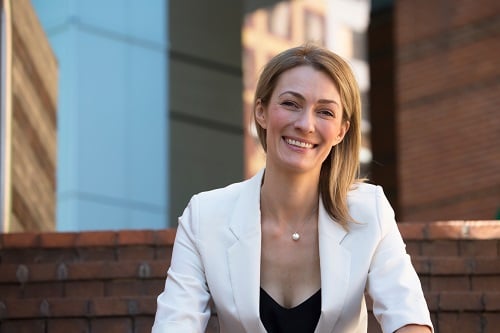

Diversity and inclusion are important topics of discussion in the public sphere at the moment. As more businesses and the general public alike become aware of the importance of representation, there’s been a greater understanding of the unique perspectives that can be gained by celebrating diversity.
Naturally, the insurance industry has not remained unaffected by this conversation; while many industries (incorrectly) see themselves existing in isolation from the wider public, insurers should be keenly aware of the importance of their connection to the community.
Organisations should be reflective of the societies and communities they exist and operate within. Perhaps the most obvious example is the representation of women in the insurance industry. While recent years have seen improvements in gender diversity in senior roles, there are still numerous areas to be addressed.
Traditionally, diversity initiatives have been delegated to HR. But Charis Martin-Ross, head of diversity and sustainability at Allianz, stresses that diversity needs to be approached on a much more holistic basis. Issuing employees with a mandate from on high will not generally be well received, even if staff agree with the broad principles.
“Diversity and inclusion can’t be seen by staff as a HR project or a HR strategy,” she says. “You’ve really got to have leaders who understand the business case and then care enough to do something about it. You have to tackle it in absolutely everything that you do.”
Martin-Ross staunchly believes that the insurance industry has a key role to play in the future of diversity and inclusion in wider society.
“One of the parts of my role that I love the most is seeing the number of people within Allianz and across the insurance industry that share my values,” she says. “It’s full of people who genuinely want to make a difference.”
As an example, Martin-Ross points to a key Allianz initiative, developed in conjunction with Settlement Services International (SSI) – the Sustainable Employment Program, which is geared towards teaching young refugees basic business skills and helping them find a job.
“Over the last two years, we’ve provided permanent employment to 21 refugees,” says Martin-Ross. “During that time, we’ve also established a scholarship to provide educational grants, and we’ve issued around 100.”
This is reflective of Allianz’s wider work with the community too; the organisation has worked closely with the Australian Paralympic Committee since 2006 and has recently established a partnership with the Cerebral Palsy Alliance to support financial literacy in people with a disability.
For Martin-Ross, all of these activities are natural extensions of how businesses should approach diversity and inclusion. She stresses that collaborating closely across multiple stakeholder groups is critical for any business looking to do good work in the area of diversity and inclusion.
Individual effort is essential, but holistic solutions are necessary for the most effective outcomes.
“We’re really trying to wrestle with complex societal issues,” says Martin-Ross. “But you can’t tackle, say, refugee settlement in isolation. It’s not a government issue specifically; it’s something that Australia needs to tackle as a society. That spans across corporate, not-for-profit and government.”
